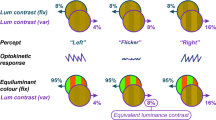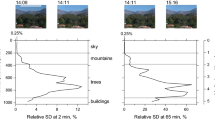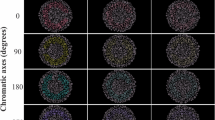Abstract
THE Departmental Committee on Sight Tests has recommended a method of classifying colour-blindness by measuring the luminosity of the colour sensations by means of the flicker method of photometry. The degree of abnormality is estimated by the ratio of red to green compared with the normal. This classification is absolutely erroneous. Light perception and colour perception are quite distinct—that is to say, there may be considerable defect of colour perception without defect of light perception. The first two cases of colour-blindness (dichromics who confused red and green) examined by me on the method suggested by the Committee had a ratio identical with the normal, whilst a man who had not the least defect of colour perception had an abnormal ratio. Prof. A. W. Porter and I examined one of the above-mentioned colour-blind men by another method, and we could not detect the least defect in the perception of luminosity in any part of the spectrum. We ascertained the point of extinction and the point of reappearance of light from all parts of the spectrum.
This is a preview of subscription content, access via your institution
Access options
Subscribe to this journal
Receive 51 print issues and online access
$199.00 per year
only $3.90 per issue
Buy this article
- Purchase on Springer Link
- Instant access to full article PDF
Prices may be subject to local taxes which are calculated during checkout
Similar content being viewed by others
Author information
Authors and Affiliations
Rights and permissions
About this article
Cite this article
EDRIDGE-GREEN, F. Light Perception and Colour Perception. Nature 90, 543–544 (1913). https://doi.org/10.1038/090543d0
Issue Date:
DOI: https://doi.org/10.1038/090543d0
Comments
By submitting a comment you agree to abide by our Terms and Community Guidelines. If you find something abusive or that does not comply with our terms or guidelines please flag it as inappropriate.



